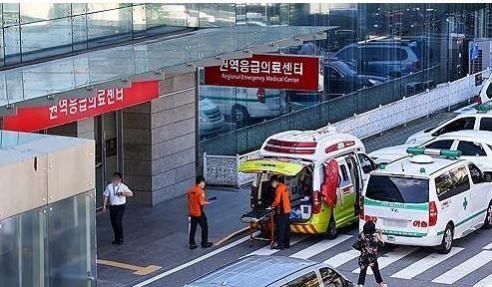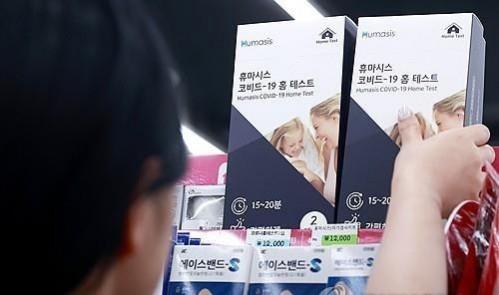
The South Korean health ministry on Wednesday began deploying military doctors and public physicians to hospital emergency rooms suffering from staff shortages, but concerns about further disruptions to the health care system have grown, officials said.
The government deployed 15 military doctors to assist in the emergency rooms of five hospitals, including Ewha Womans University Medical Centre in Seoul and Ajou University Hospital in the city of Suwon, on the day, and plans to send around 230 military doctors and public physicians to other thinly stretched hospitals across the country, Yonhap news agency reported.
The move came as a majority of South Korea's 13,000 junior doctors have left their workplaces since February in the form of mass resignations in protest of the government's decision to drastically increase the medical school admission quota starting next year to address the shortage of doctors.
The monthslong action has put a strain on the country's medical system, prompting major hospitals to cut back on surgeries, outpatient treatment services, and the operation of emergency room operations.
The government has said that it is able to manage the situation, but doctors and some experts have said mobilising military doctors will only be a stopgap measure and the healthcare system is on the verge of collapse.

"Military and public doctors would not be able to play a major role, as some of them are not well experienced and nobody is sure about who will shoulder legal responsibilities for possible medical malpractices," an official said.
As of Tuesday, three hospitals, including the Kangwon National University Hospital in Chuncheon, have shortened nighttime operation hours of emergency rooms, as well as on weekends.
The Ewha Hospital has also limited its nighttime operation to Wednesdays, and the Ajou Hospital took a similar step on Thursdays.
The situation is feared to worsen during the upcoming Chuseok holiday in mid-September.
St. Mary's Hospital of the Catholic University in Seoul is mulling the suspension of nighttime ER operations during the holiday due to the shortage of medical staff, according to hospital officials.
Others point to a possible medical service vacuum in rural areas and for service personnel.
"When we mobilise public medical staff, we carefully consider the overall situation and take steps to minimise the impact on affected regions. We will continue to make all-out efforts," a health ministry official said.
As part of the medical system reform, the Yoon Suk Yeol administration has vowed to increase the medical school admissions quota by 2,000 seats per year over the next five years or so to address a shortage of doctors, and it finalized a hike of some 1,500 students for next year.
Doctors claim that medical schools will not be able to handle the increased enrollment, which will compromise the quality of medical education and ultimately the country's medical services.
(With inputs from IANS)

















